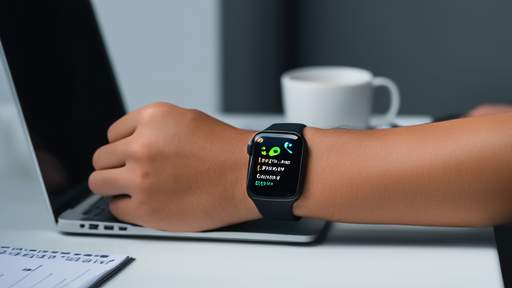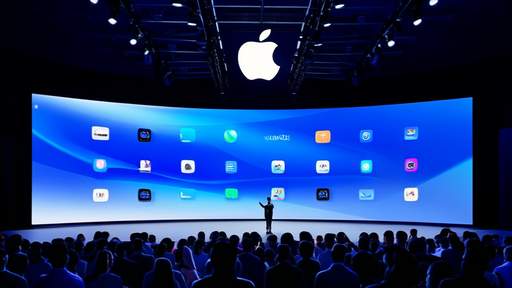In recent years, wearable technology has become an essential tool for fitness enthusiasts and health-conscious individuals. The Apple Watch, in particular, has gained popularity for its ability to track various health metrics, including heart rate, step count, and calories burned. However, a new study conducted by researchers at the University of Mississippi has raised concerns about the accuracy of the Apple Watch’s calorie estimation feature. This article will explore the findings of this study, the implications for users, and what it means for the future of wearable technology.
The University of Mississippi researchers conducted a peer-reviewed meta-analysis, reviewing 56 previously published studies that compared the Apple Watch’s performance against gold-standard clinical tools in three core areas: heart rate monitoring, step count tracking, and energy expenditure estimation. The results showed that the Apple Watch provided highly accurate measurements for heart rate, with a mean absolute percentage error of just 4.43%, and step count, with an error rate of 8.17%. These figures are within the threshold generally considered acceptable for consumer-grade fitness devices.
However, the study revealed a significant discrepancy when it came to estimating calories burned. The average error for energy expenditure was 27.96%, which is more than three times the margin considered acceptable for accurate measurement. This means that the calorie numbers displayed on the Apple Watch can be quite far from reality, potentially leading to misleading information for users.
The findings of this study have important implications for individuals who rely on the Apple Watch to track their calorie expenditure. While the device is excellent for monitoring heart rate and step count, its calorie estimates should be taken with a grain of salt. According to the researchers, users should not take every number as 100% truth, especially when it comes to calories. Instead, the Apple Watch should be seen as a helpful guide rather than a diagnostic tool.
This inaccuracy could have real consequences for users, particularly those with specific health or fitness goals. For example, fitness enthusiasts might overtrain if they believe they haven’t burned enough calories, while others might miss signs of fatigue or illness. Additionally, individuals trying to manage their weight could be misled by inaccurate calorie tracking, potentially affecting their progress.
There are several reasons why the Apple Watch’s calorie estimation might be less accurate than its other metrics. One factor is the complexity of calculating energy expenditure. Unlike heart rate or step count, which can be measured directly through sensors, calorie burn is estimated using algorithms that take into account various factors such as age, weight, gender, and heart rate. These algorithms may not always accurately reflect real-world conditions, leading to errors in the final estimate.
Another factor is the variability in user input. For the most accurate calorie tracking, users need to enter precise personal data, calibrate their watch, and ensure proper positioning. Any discrepancies in these inputs can lead to significant errors in the final estimate.
Despite the current limitations, the study did observe a trend toward improved accuracy in more recent Apple Watch models. This suggests that Apple is continuously refining its sensor technology and algorithms to enhance the accuracy of its devices. However, calorie tracking remains the weakest link, indicating that further development is needed in this area.
Given the inaccuracies in calorie estimation, users should take steps to maximize the accuracy of their Apple Watch. This includes entering precise personal data, calibrating the watch regularly, and ensuring it fits properly. Additionally, users should be aware of the limitations of wearable technology and not rely solely on the numbers displayed on their device. Instead, they should use the Apple Watch as a motivational tool to track habits and stay active, while also consulting other sources or professional advice for more accurate health assessments.
The Apple Watch is a powerful tool for tracking various health metrics, but its calorie estimation feature has significant limitations. The recent study by the University of Mississippi highlights the need for users to be cautious when relying on these numbers for important health decisions. While Apple continues to improve its technology, users should view the calorie estimates as a helpful guide rather than a definitive measurement. By understanding these limitations and taking steps to maximize accuracy, users can continue to benefit from the many advantages of wearable technology while staying informed about their health.

By Christopher Harris/Jun 6, 2025

By Emily Johnson/Jun 6, 2025

By Laura Wilson/Jun 6, 2025

By Jessica Lee/Jun 6, 2025

By William Miller/Jun 6, 2025

By Victoria Gonzalez/Jun 6, 2025

By /May 21, 2025

By /May 21, 2025

By /May 21, 2025

By /May 21, 2025

By /May 21, 2025

By John Smith/May 19, 2025

By Sophia Lewis/May 19, 2025

By Christopher Harris/May 19, 2025

By Natalie Campbell/May 19, 2025

By Grace Cox/May 19, 2025

By Amanda Phillips/May 19, 2025

By Megan Clark/May 19, 2025

By Eric Ward/May 19, 2025

By Ryan Martin/May 19, 2025